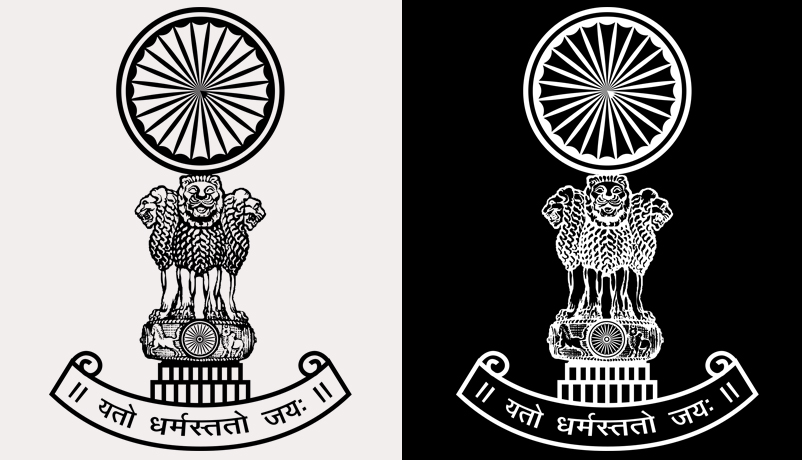 SHOUMIK BISWAS/CATCH NEWS
SHOUMIK BISWAS/CATCH NEWSHas SC contradicted itself by pitching against quota in higher education institutes?
Apex court positions
- The Supreme Court seeks to do way with quota in higher education
- Earlier, a larger SC Bench had decided in favour of reservation
Anti-merit or pluralistic
- No student can complain that merit is compromised in socially inclusive admission
- US varsities are an example of how plurality helps education
More in the story
- What should the petitioner in the Supreme Court case do?
- What should the government do?

The recent Supreme Court suggestion of scrapping reservation in higher educational institutes for the sake of “national interest” goes against its own verdict.
The apex court’s advice to the central government is unfortunate. A larger Bench earlier decided in favour of reservation in higher education. It is surprising that a smaller Bench has raised questions over the judgment of a larger Bench.
The concerned parties should appeal against the verdict, and the Chief Justice of India should take the lead by forming a constitutional Bench to scrutinize all aspects of the issue. Any Bench dealing with the matter must keep in that mind the principle of reservation and providing special opportunities to the deprived classes is part of the basic spirit of the Constitution.
Any conclusion in this regard merits careful consideration and sincerity as this principle is enshrined in the chapter of Fundamental Rights in our Constitution.
No country as diverse as India can move forward without the judicious inclusion of various social segments. This is why the principle of special opportunities to the deprived classes was among the top priorities of those who shaped our Constitution.
The debates in the Constituent Assembly reflects complete unanimity among its members over the proposition of affirmative action.
The spirit of the Constitution
The great people who laid the foundations of modern India had no doubt on the issue. The whole country stood with Baba Saheb Ambedkar when he said reservation was necessary in nation-building. The same sentiment is evident in the deliberations of the Constituent Assembly.
India adopted the concept of western democracy with an inherent contradiction. It was based on the premise that every vote has an equal value. However, the makers of our Constitution were aware that the social status of every individual was not equal due to a centuries-old social set-up.
Baba Saheb Ambedkar stressed this fear in his last address to the Constituent Assembly.
“In politics we will be recognising the principle of one man one vote and one vote one value. In our social and economic life, we shall, by reason of our social and economic structure, continue to deny the principle of one man one value.
SC questions higher education quota. But are quotas really bad for education, asks Dilip C Mandal
“If we continue to deny it for long, we will do so only by putting our political democracy in peril. We must remove this contradiction at the earliest possible moment or else those who suffer from inequality will blow up the structure of political democracy,” he said.
The suggestion of the Supreme Court must be interpreted in the light of this warning issued by the father of our Constitution. The government must make it clear that it will not tamper with the reservation in higher educational institutes.
Flawed argument of meritocracy
The argument that reservation affects the level of education does not hold ground on close scrutiny. All the great universities of the world promote social, racial and gender diversity in giving admission to students as well as appointment of teachers. All the higher learning institutes of the United States of America believe in this principle.
In a case related to the Texas Law School, the US Supreme Court ruled that all educational institutes are free to ensure plurality in their admission criteria. The court also held that it strengthens equality among various sections of the society.
No student can complain that merit is compromised in a socially inclusive admission process. The US educational institutions have clearly not degraded their merit by embracing diversity.
In fact, thousands of Indian students get a chance to study in American universities only because of the principle of plurality. The inclusion of students from diverse backgrounds not only enriches the talent pool but also encourages competition.
The best US varsitites believe in pluralism. Then what’s wrong with India’s academic quotas
The feeling of deprivation among some sections of the society does not augur well for national unity. A nation is made up of people who are equal participants in its joys, sorrows and dreams.
Any country where people do not get equal opportunities to fulfill their aspirations is nothing more than a political entity defined only by the outlines of a map. It is not a nation in true sense of the word.
Therefore, we need a thousand more affirmative actions to uplift the historically under privileged sections of our society. Reservation is just one of the attempts in that direction.
In this context, raising fingers at the reservation policy is inimical to our national interest. It is incumbent upon the government to intervene and withhold the basic spirit of the Constitution.
http://www.catchnews.com/life-society-news/has-supreme-court-contradicted-itself-by-pitching-against-quota-in-higher-education-institutes-1446136284.html
Leave a Reply